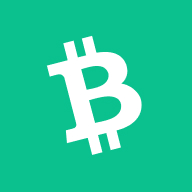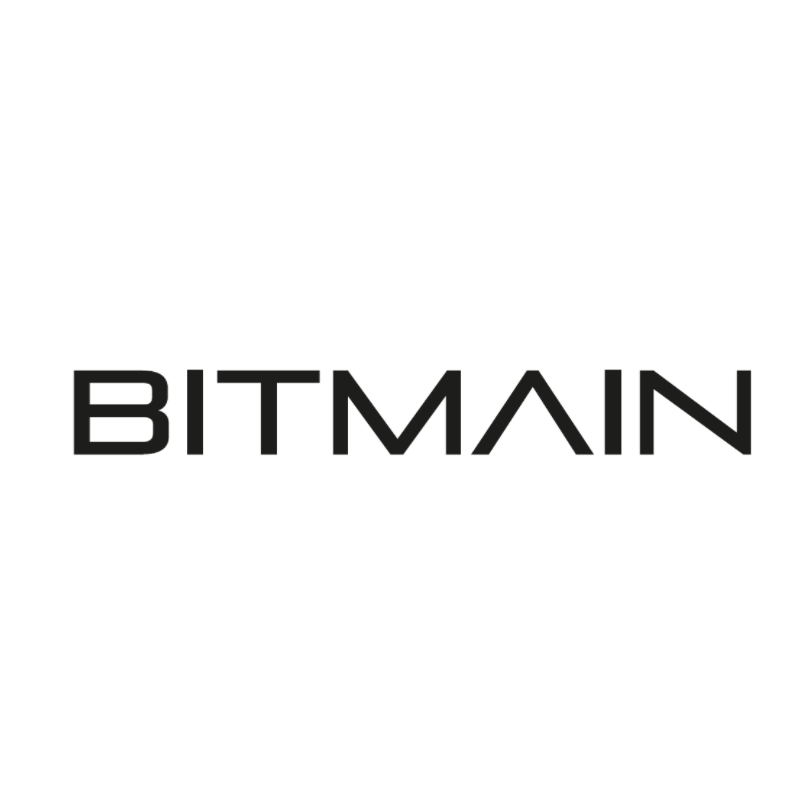
A bitcoin fork focused on payments
BCH price live chart

Download Bitcoin Cash wallet app
Store & Transfer BCH safely
Monitor your BCH balance in USD
Receive BCH in BNB network
Send Bitcoin Cash by mobile phone number with 0% fee
BCH wallet mobile app for iOS and Android
Bitcoin Cash basics
Bitcoin Cash
Payments
Bitcoin Cash is a Bitcoin hard fork advocating for and building towards a literal interpretation of Bitcoin as a "peer-to-peer electronic cash system". It views cheap peer to peer transactions as the core value proposition of the network and is dedicated to increasing block sizes and on-chain transaction throughput in pursuit of this goal. Bitcoin Cash believes that starting as a medium of exchange is the superior route to becoming money in opposition to Bitcoin's strategy of first optimizing for securely storing value.
Bitcoin Cash token type
BCH
Native
Payments
BCH is used as a native currency within the Bitcoin Cash network. BCH can be used for peer-to-peer payments and value storage within the Bitcoin Cash network. With its larger block sizes (relative to Bitcoin), Bitcoin Cash aims to offer high throughout and on-chain scalability through increased block sizes, aiming to reduce the reliance on off-chain scalability solutions for transactions.
Bitcoin Cash history and first price
Ledger Fork
Bitcoin Cash was distributed via a Bitcoin hard fork whereby new BCH were distributed to current Bitcoin private key holders by inheriting the new chain the existing Bitcoin UTXO sets prior to the fork. Roughly 16.5 million BCH were distributed on August 1, 2017 (block 478559) at which point Bitcoin Cash broke out of Bitcoin's consensus rules, making transactions incompatible.
As early as 2010, shortly after Satoshi implemented a block limit into Bitcoin, discussions around block size began. However, discussions around the block limit largely stayed in the background until 2017 when tensions within the Bitcoin community rose over rising transaction fees and increasingly divergent opinions on scaling Bitcoin. Supporters of bigger blocks believed that for Bitcoin to fulfill the vision of a peer-to-peer electronic currency as outlined in the original whitepaper, it was crucial to raise the block limit in order to increase transaction capacity. Bitcoin Cash proponents pushed for a system that could scale to VISA level transaction throughput without second layers and while maintaining affordable transaction fees. It rejected the philosophy of Bitcoin Core that Bitcoin's central value proposition is censorship resistance and trust-minimization, and that Bitcoin full nodes needed to be maximally decentralized to achieve this. Instead of envisioning Bitcoin as a settlement layer or a Digital Gold, Bitcoin Cash envisions Bitcoin as a peer-to-peer electronic cash system, emphasizing Bitcoin's utility as a medium of exchange.
In 2017 at the Consensus conference amidst rising transaction fees on Bitcoin and increasingly tense debate around the Bitcoin block limit, a meeting with miners and Core Developers took place in what is referred to as the “New York Agreement”, where an agreement was reached to support SegWit and a 2MB hard fork. Known as SegWit2x, this proposal was backed by over 80% of the network’s hash rate. Despite the desires of miners, users wanted to activate SegWit without the block size increase. They set a date (August 1, 2017) where Bitcoin would soft fork to support SegWit and keep the 1MB block size. Enough nodes signaled support for it that they forced miners to accept or have their blocks rejected by the network. A faction of the bigger blocks camp, rejected SegWit altogether, citing frustrations with the prioritization of SegWit over bigger blocks, and on August 1, 2017 they launched a hard fork of Bitcoin called Bitcoin Cash, with 8MB block limits. The 8MB block limit was later increased to 32MB in 2018 after another contentious hard fork regarding a minority faction's desire to raise the block limit to 128MB. This hard fork resulted in the creation of Bitcoin SV, a fork of Bitcoin Cash.
Although increased block capacity could increase transaction throughput on-chain, it could potentially restrict the universe of participants who could be capable of running full nodes, thus making this something the community needs to address in order to be able to execute on its vision of a decentralized peer-to-peer cash system. In addition to pursuing on-chain scalability through larger block sizes, Bitcoin Cash prioritizes fast-paced development of technological improvements in opposition to the more conservative philosophy of Bitcoin. To date, Bitcoin Cash has 6 competing node implementations: BitcoinABC, Bitcoin Unlimited, BXT, Parity, Bitprim, and Bitcoin Cash. Bitcoin Cash has also had a variety of upgrades, the most recent of which taking place of 05/15/2021. This upgrade made a variety of changes including the removal of the unconfirmed transaction limit, the enabling multiple OP_RETURNS, the implementation of double-spend proofs, , the inclusion of Cash Improvement Proposals (CHIPs) to introduce new specification changes to the protocol, and the inclusion of a new mining block default limit size of 8 MB.
Genesis of Bitcoin Cash
Increased block limit to 32MB. Addition and reactivation of various opcodes
Enable OPCHECKDATASIG and OPCHECKDATASIGVERIFY opcodes Enforce minimum transaction size Enforce "push only" rule for scriptSig Enforce "clean stack" rule Addition of canononical transaction ordering which enabled the graphene algorithm to run more efficiently and script enhancements which enabled oracle data to be imported to the blockchain. Resulted in creation of Bitcoin SV, a contentious hard fork of Bitcoin Cash prioritizing strict adherence to Satoshi Nakamo's original Bitcoin client.
Addition of Schnorr Signatures and SegWit recovery transactions
Enable Schnorr signatures for OP_CHECKMULTISIG(VERIFY) opcode. Enforce minimal push and minimal number encoding rules in Script, which removes the final BIP 62 malleability vector, and nearly eliminates malleability for most of the transactions on the BCH network.
Bitcoin Cash's SigOps counting and limiting system is replaced with a new system, known as SigChecks. A new opcode called OP_REVERSEBYTES has been added to the script system.
Bitcoin Cash's current difficulty adjustment algorithm will be replaced by a new algorithm: aserti3-2d, (or 'ASERT' for short).
Removal of unconfirmed transaction limit Allowance of transactions with multiple OP_RETURN outputs
Bitcoin Cash technology explained
Bitcoin Cash, the protocol, is a distributed, time-stamped ledger of unspent transaction output (UTXO) transfers stored in an append-only chain of 32MB data blocks. A network of mining and economic nodes maintains this blockchain by validating, propagating, and competing to include pending transactions (mempool) in new blocks. Economic nodes (aka "full nodes") receive transactions from other network participants, validate them against network consensus rules and double-spend vectors, and propagate the transactions to other full nodes that also validate and propagate. Valid transactions are sent to the network's mempool waiting for mining nodes to confirm them via inclusion in the next block.
Mining nodes work to empty the mempool usually in a highest-to-lowest fee order by picking transactions to include in the next block and racing against each other to generate a hash less than the target number set by Bitcoin Cash's difficulty adjustment algorithm. Bitcoin Cash uses a Proof-of-Work (PoW) consensus mechanism to establish the chain of blocks with the most accumulated “work” (a.k.a., energy spent on solved hashes) as the valid chain.






Bitcoin Cash supply limit
Inflationary
Decreasing Issuance
Yes
20999999.9769
Bitcoin Cash shares Bitcoin's genesis block and entire blockchain history up to August 01, 2019 (block 478559) when the hard fork occurred. As such, it went through two halvings to date; in November 2012, and again in July 2016, each cutting the initial block reward by half. On average, Bitcoin Cash generates new blocks every 10 minutes, rewarding miners with 12.5 new BCH and the total transaction fees from the preceding block. Each block has a 32MB limit and block rewards are halved every 210,000 blocks (approximately 4 years). Eventually, once the 21 million BCH hard cap has been reached, block rewards will transition entirely to transaction fees shifting the security model of the protocol to one based on demand for block space versus one based on demand for BCH. Bitcoin Cash's next halving is expected to happen in May 2020.
The difference between BCH and BTC supply curves since the fork can be explained by the difficulty adjustment algorithm which included one addition compared to Bitcoin: the Emergency Difficulty Adjustment (EDA). This mechanism was set by the Bitcoin Cash developers to incentivize miners to prioritize BCH’s transactions over that of BTC’s. Miners leveraged this mechanism to maximize their profit by reducing their BCH mining output while waiting for the Emergency Difficulty Adjustment to reduce BCH’s difficulty, which in turn would lead to higher returns. As a result, 120,000 more BCH than BTC were mined from August 01, 2017, until November 13, 2017, when Bitcoin Cash underwent a hard fork to change the difficulty adjustment algorithm.


Bitcoin Cash consensus
Proof-of-Work
Nakamoto Consensus
10 min
Consensus
Bitcoin Cash uses Nakamoto Consensus whereby the valid chain is the longest chain with the most accumulated proof-of-work. Consensus in Bitcoin Cash, and other systems using Nakamoto Conensus, is probabilistic because there is always a chance that a new, longer competing chain could emerge with more accumulated proof-of-work, that would invalidate the current chain.
Mining
Miners solve computational puzzles to generate new blocks using a SHA-256 algorithm. In this process, miners compete to generate a hash less than the target number set by Bitcoin Cash's difficulty adjustment algorithm. Notably, the target difficulty level is adjusted every block as opposed to Bitcoin's every 2016 blocks.
Although open to anyone with a CPU, Bitcoin Cash mining is now dominated by ASICs usually situated in enterprise-scale data centers. Furthermore, in order to smooth individual miner revenue as mining has become more competitive, mining is now done in pools where participants contribute hash power to the pool and receive a proportional share of the profits if the pool finds a valid block.
Bitcoin Cash governance
No On-Chain Governance
Bitcoin Cash developement is open to the open-source community. Although largely driven by Bitcoin ABC, Bitcoin Cash has 6 different client implementations. Protocol development is governed by a proposal process whereby anyone in the open-source Bitcoin Cash community can submit draft proposals. After debate by the community, the client implementation editors accept or reject the proposals. Decisions from the process are written into the Bitcoin Cash specification, as well as the software that runs the network. Finally, protocol changes are “ratified” on-chain when the majority of the network adopts the upgrade and doesn’t break consensus.
Although very similar to Bitcoin overall, as opposed to users signaling support of upgrades, Bitcoin Cash tends to use hash power signaling to indicate support of network upgrades. Furthermore, Bitcoin Cash implements planned upgrades on a bi-annual basis as part of its more progressive network upgrade philosophy
Store Bitcoin Cash with Cropty cryptocurrency wallet by 3 simple steps:
- Download the app from the Apple AppStore or Google Play, or open your browser wallet.
- Create your Cropty wallet account with Face ID or Touch ID security options.
- Transfer BCH from external wallet.
Receive Bitcoin Cash to your Cropty wallet by QR-code, phone number, e-mail and nickname:
- Download the app from the Apple AppStore or Google Play, or open your browser wallet.
- Create your Cropty wallet account, set up a nickname.
- Click ‘Receive’ and follow the instructions.
You can transfer your Bitcoin Cash holdings and store it safely with Cropty wallet. Cropty secures safety of your holdings through various verification options like using password, authenticator app, Face ID, Touch ID and backup codes. You can be sure no one can get access to you Bitcoin Cash holding except you.
Start investing in Bitcoin Cash with Cropty cryptocurrency wallet by 3 simple steps:
- Download the app from the Apple AppStore or Google Play, or open your browser wallet.
- Create your Cropty wallet account, set your authentication settings.
- Transfer BCH from external wallet.
The Cropty wallet provides the most convenient application for storing and transfering Bitcoin Cash. Cropty targets to become one the best crypto wallets for Android and iOS in 2026. Cropty provides convenient application and secure custodial services, built for crypto beginners, as well as for crypto-savvies.
You can receive Bitcoin Cash donations instantly with Cropty wallet. Download Android or iOS app or open the web version, sign up, click ‘Receive’ and follow simple instructions. Share your address with someone who wants to donate you in crypto.
You can receive Bitcoin Cash donations instantly with Cropty wallet. Download Android or iOS app or open the web version, sign up, click ‘Receive’ and follow simple instructions. Share your address with someone who wants to donate you in crypto.
You can send Bitcoin Cash instantly without fee in the Cropty wallet. Download Android or iOS app or open the web version, sign up, click ‘Send’, choose ‘Send via e-mail, phone number or nickname’ and follow simple instructions.
- Sign up to Bitcoin Cash wallet.
- Top up your balance with Bitcoin Cash.
- Store, trade or deposit your Bitcoin Cash.
- Get Bitcoin Cash deposit interest directly to your Cropty wallet.







